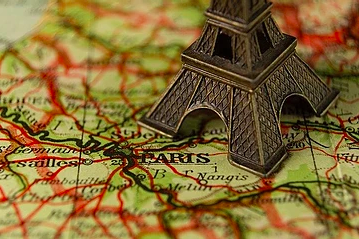Recently, UNESCO has compiled a ranking of the 10 most difficult languages to learn. It explains for each language the cause of its difficulty and gives us the opportunity to make a new top 10.
🏆 10th position: French

If it is relatively easy to learn for speakers of other Latin languages (Spanish, Italian…) on the other hand its strict grammar and pronunciation rules (silent letters, slurs…) make it a complex language to speak. There is very little logic in its spelling since it is mainly derived from its history.
🏆 9th, 8th and 7th position: Danish, Norwegian, and German

With their large number of consonants and the length of some compound words, they can be terrifying the first time you hear them. Inflectional languages, they require words to change their form according to their grammatical relationship to others in the same sentence.
And let’s not forget the complex declensions and conjugation, and the existence of many local dialects.
🏆 6th position: Finnish

Finnish has its rightful place in sixth place: this language with its still mysterious origins is also an inflectional and agglutinating language (many prefixes and suffixes are added to words). Finnish goes so far as to change verbs, nouns, pronouns, adjectives and numbers according to their role in the sentence… And let’s not talk about the vowel harmony that gives students sleepless nights: some vowels cannot be juxtaposed in the same word, so they have to be adapted.
🏆 5th position: The Japanese

The first Asian language in this classification, Japanese is distinguished by its alphabet and by the great difference between the written and spoken language. The grammar is relatively simple, but is also used to express a wide range of linguistic politeness and formalities.
🏆 4th position: Icelandic

Icelandic is the hardest Nordic language of all! Its vocabulary is very specific, and at the grammatical level, some vowels are affected by their surroundings during declensions and conjugations… A single word can take up to 70 different forms!
🏆 3rd position: The literal Arabic

Even without its own alphabet, written from right to left, and the scarcity of its vowels, Arabic reserves additional difficulties. A complex construction of words starting from a basic root complicates its learning, and pronunciation requires a lot of patience and perseverance as it is very complex, guttural sounds being the most delicate for English or French language learners.
🏆 2nd position: the Greek

Greek is a very complex language with many archaic legacies. Having passed the alphabet barrier, its rules of accentuation are notoriously complex. Yet accents play a central role in this language: the meaning of a word can completely change depending on the intonation – and therefore on the accents.
🏆 1st position: The most difficult spoken language in the world: Chinese!

It is very officially that the trophy for the most difficult language is awarded to Chinese.To give you an idea of the complexity of this language: the written form (the sinograms we have already talked about here) gives no clues about pronunciation… And pronunciation and intonation completely change the meaning of a word. Intonations which of course are peculiar to Chinese and almost impossible to hear for a Latin ear… So you have to train relentlessly to master this language!
When creating your content, some languages are more difficult to read than others because of the complex nature of their writing. Therefore they require more time to be processed. 2002 studios is committed to always provide you with quality content within the time frame imposed by you or your clients.